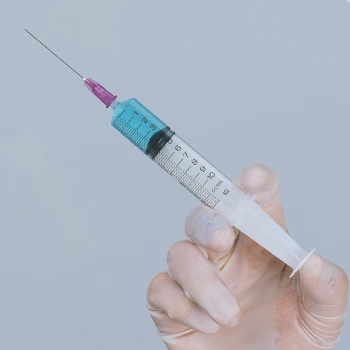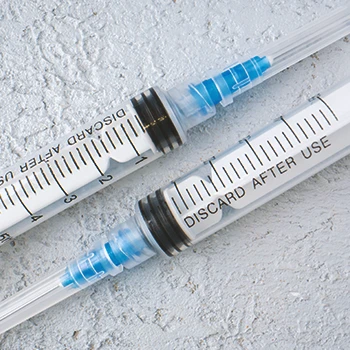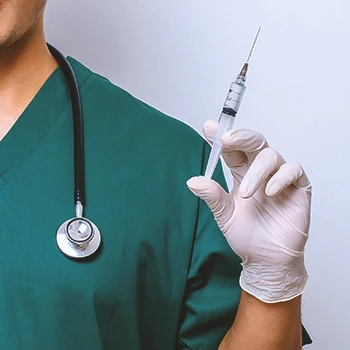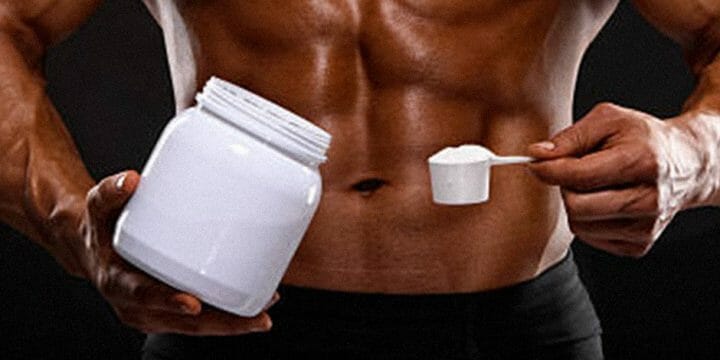As a pro-MMA fighter and fitness coach, I've come across quite a few athletes dabbling with human growth hormone (HGH) under the mistaken belief that it's a steroid.
This sparked my curiosity, pushing me to dig deeper into what HGH really is.
I consulted with medical experts in sports medicine, diving deep into research to understand HGH better. My fighter's perspective, mixed with scientific insights, made this exploration eye-opening.
In this article, I'll blend my experience from the ring and the gym with the latest research to clarify if HGH is a steroid and how they differ.
Let's dive in.
Quick Summary
What Is HGH?

The human growth hormone (HGH) is a hormone naturally produced by the pituitary gland that is necessary for cell development, renewal, and reproduction, according to the Cleveland Clinic [1].
Research in Clinical Medicine Insights shows HGH can speed up injury healing and muscle restoration post-exercise [2]. It boosts metabolism, calorie burning, and muscle building too.
The Mayo Clinic notes that HGH might enhance skin health and slow aging signs, although solid proof is scarce [3].
What's clear is that HGH kick-starts metabolism, triggering the liver to produce an insulin-like substance for cartilage and muscle protein synthesis.
Moreover, a 2008 Endocrine Reviews study confirms HGH's key role in bone density, organ growth, and muscle production [4].
Although HGH occurs naturally, there is also a synthetic human growth hormone that can be consumed as a replacement therapy or a supplement.
Differences Between HGH and Steroids

First up, using somatropin (HGH) is cool and safe if it's doctor-prescribed. However, from my experience in the competitive fighting world, I can tell you that anabolic steroids are always a bad idea and off-limits.
Second, even though they're all growth hormones, their effects on us differ a lot. With a doctor's proper checks like blood tests and stimulation tests, the risk of bad side effects stays low [5].
In my coaching experience, these tests are critical to determining if someone with low HGH needs treatment. It's all about personalized care in the fitness world.
The Cleveland Clinic points out that HGH therapy can boost sleep, energy, motivation, metabolism, and bone strength, together with a rejuvenation of sexual health and performance [6].
I found that the FDA has approved HGH substitution treatment, and numerous respectable pharmaceutical producers provide high-quality HGH products (somatropin), including:
- Norditropin
- Genotropin
- Omnitrope
- Saizen
- Tev-Tropin
- Humatrope
The quality and safety of these human growth hormone drugs are audited. In contrast, steroids don’t undergo such inspections.
Related Articles:
Why Do People Confuse Steroids and HGH?

The following are some of the various reasons why someone could confuse one with the other:
- They are both anabolic, which means they stimulate muscle mass (aid in developing lean muscle), but in different ways and with distinct adverse effects.
- HGH and steroids are often administered through injection, which is frequently linked with artificial performance-enhancing drugs.
- Most black-market steroid companies also produce illicit (sometimes impure) HGH items to sell at below-market prices.
- Athletes frequently misuse both to benefit from their performance-enhancing properties.
- Both are occasionally advertised as a 'spring of youth,' although it's worth noting that intravenous HGH treatment can provide some anti-aging benefits.
"Growth hormone has extremely therapeutic benefits. It is prescribed privately by Harley Street clinicians who assist in anti-aging. But it can also enhance athletic performance through muscle growth, and promote weight loss by preventing carbohydrates from turning into fat."
- Dr. Michael Graham, Professor in Substance Abuse at Birmingham's Newman University College
The Dangers of Unprescribed Steroids and HGH

In my years around gyms, I've seen that steroids, especially those from the black market, are usually dodgy or of poor quality.
WHO research shows that one in ten drugs from developing countries, unlike FDA-approved HGH, are counterfeit or substandard [7].
Regular checks by an endocrinologist are key when using HGH or similar hormones, ensuring patient safety.
While HGH therapy is safely monitored, it's tough to track steroid users' health due to its illegal status.
Harvard Medical School warns that using HGH in healthy adults could cause issues like carpal tunnel, type 2 diabetes, swelling, pain, and even increase the risk of certain cancers [8].
FAQs
Is HGH Harmful?
Yes, HGH may be harmful. Long-term exposure to higher growth hormone levels can result in permanent acromegaly, but even low doses can cause consequences like diabetes and cardiovascular disease.
Is Hgh Considered a Drug?
HGH is considered a controlled drug by the Food and Drug Administration. It is prohibited to use human growth hormone for an unapproved condition, like muscle development or anti-aging therapy in older people.
Is HGH Legal in Bodybuilding?
No, HGH is not legal in bodybuilding. They are unlawful for non-medical use and are prohibited in the majority of nations under the World Anti-Doping Agency (WADA).
Will HGH Burn Fat?
Yes, HGH burns fat. Human growth hormone shots are believed to reduce fat storage and enhance muscle development to a certain extent.
Still, research has not demonstrated that this is a viable or effective weight reduction method.
References:
- https://my.clevelandclinic.org/health/articles/23309-human-growth-hormone-hgh
- https://www.ncbi.nlm.nih.gov/pmc/articles/PMC5063841/
- https://www.mayoclinic.org/healthy-lifestyle/healthy-aging/in-depth/growth-hormone/art-20045735
- https://www.ncbi.nlm.nih.gov/pmc/articles/PMC2726838/
- https://www.endocrine.org/patient-engagement
- https://my.clevelandclinic.org/health/diseases/23343-growth-hormone-deficiency-ghd
- https://www.who.int/news/item/28-11-2017-1-in-10-medical-products-in-developing-countries-is-substandard-or-falsified
- https://www.health.harvard.edu/diseases-and-conditions/growth-hormone-athletic-performance-and-aging
About The Author
You May Also Like






